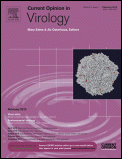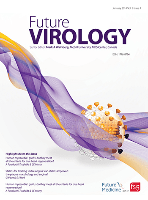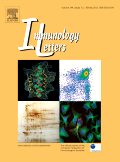
Retrovirology
Scope & Guideline
Unlocking Insights into Infectious Diseases
Introduction
Aims and Scopes
- Retroviral Pathogenesis and Host Interaction:
Research emphasizes the molecular mechanisms through which retroviruses, including HIV and HTLV, interact with host cells, leading to disease. This includes studying viral replication cycles, immune evasion strategies, and the consequences of viral infection on cellular functions. - Genomic and Structural Analysis of Retroviruses:
The journal publishes studies that explore the genetic diversity, genomic structures, and evolutionary dynamics of retroviruses. This includes comparative analyses of viral genomes and the role of host factors in modulating viral behavior. - Therapeutic Interventions and Vaccine Development:
There is a consistent focus on identifying potential therapeutic targets and developing innovative treatment strategies, including gene editing technologies and monoclonal antibodies, aimed at controlling or eradicating retroviral infections. - Neurovirology and Retroviruses:
Research on the impact of retroviruses on the central nervous system is a core area, particularly concerning HIV and its association with neuroinflammation and neurodegenerative conditions. - Endogenous Retroviruses and Disease Associations:
The journal also investigates the role of endogenous retroviruses in human health and disease, including their potential links to autoimmune disorders and cancer.
Trending and Emerging
- Host Immune Response and Viral Manipulation:
There is a growing emphasis on understanding how retroviruses manipulate host immune responses. This includes studies on the role of specific host factors and immune evasion tactics employed by viruses like HIV. - Innovative Therapeutic Approaches:
Research on cutting-edge therapeutic strategies, including CRISPR/Cas9 gene editing, is becoming increasingly prominent. This reflects a broader trend towards finding functional cures and novel treatments for retroviral infections. - Interdisciplinary Approaches in Retrovirology:
An emerging trend is the application of interdisciplinary methods, including bioinformatics and systems biology, to study retroviral interactions and pathogenesis, highlighting a move towards more integrative research methodologies. - Focus on Viral Latency and Reactivation:
Studies investigating the mechanisms of viral latency and strategies for reactivation are gaining traction, particularly in the context of HIV research aimed at eradicating latent reservoirs. - Neurovirology and Mental Health Implications:
An increasing number of publications are addressing the neurocognitive effects of retroviral infections, particularly HIV, and their associations with mental health disorders, indicating a rising interest in the intersection of virology and psychology.
Declining or Waning
- Basic Virology Studies:
There seems to be a decline in purely descriptive studies focused on the basic biology of retroviruses without direct implications for therapeutic or clinical contexts. The trend has shifted towards more applied research. - Non-HIV Retroviral Research:
Research specifically centered on non-HIV retroviruses has become less frequent. While still important, the focus appears to be shifting more towards HIV-related studies, particularly regarding treatment and management. - Historical Perspectives on Retroviruses:
Papers that focus on historical analyses or retrospective studies of retroviral outbreaks and their impacts seem to be decreasing, as the journal increasingly prioritizes novel and forward-looking research.
Similar Journals

REVIEWS IN MEDICAL VIROLOGY
Connecting Researchers to Vital Virology InsightsREVIEWS IN MEDICAL VIROLOGY is a premier academic journal published by Wiley, dedicated to advancing the field of virology and infectious diseases. Established in 1991, this journal has gained a reputable standing, holding a Q1 ranking in both Infectious Diseases and Virology as of 2023, with impressive Scopus rankings placing it at #17 out of 344 in the realm of Medicine - Infectious Diseases, and #8 out of 80 in Immunology and Microbiology - Virology. This reflects its substantial impact factor and contribution to ongoing research and scholarship. While it is not an Open Access publication, REVIEWS IN MEDICAL VIROLOGY offers vital insights and comprehensive reviews that cater to a diverse audience including researchers, healthcare professionals, and students pursuing knowledge in medical virology. The journal serves as a vital resource for understanding the complexities of viral pathogens and the evolving landscape of antiviral therapeutics, making it an essential read for those poised at the forefront of infectious disease research.

Current Opinion in Virology
Illuminating Trends and Challenges in Virology TodayCurrent Opinion in Virology, published by Elsevier Science Ltd, is a premier journal dedicated to advancing knowledge in the dynamic field of virology. Established as a respected source of comprehensive reviews and critical evaluations, this journal boasts an impressive impact factor and has achieved a distinguished Q1 category ranking for virology, signifying its pivotal role in the academic community. Serving researchers, professionals, and students alike, Current Opinion in Virology presents insightful contributions that delve into the latest developments, emerging trends, and pivotal challenges facing virology today. With its Scopus ranking placing it in the top 15% of its field, the journal provides unparalleled access to cutting-edge research that informs both basic and applied aspects of virology. Although not an open-access journal, it offers options for subscriptions that ensure accessibility to critical content. As the field continuously evolves, Current Opinion in Virology remains at the forefront, bridging the gap between research and clinical application, making it an essential resource for all in the virology community.

ACTA VIROLOGICA
Empowering the scientific community with groundbreaking virology studies.ACTA VIROLOGICA, a key journal in the field of virology and infectious diseases, is published by FRONTIERS MEDIA SA in Slovakia, serving the global scientific community with groundbreaking research since its inception in 1957. This esteemed journal, identified by ISSN 0001-723X and E-ISSN 1336-2305, provides a platform for rigorous peer-reviewed articles that contribute significantly to our understanding of viral pathogens and their implications in medicine. Positioned within the Q3 category for both Infectious Diseases and Miscellaneous Medicine, and a Q4 category for Virology in 2023, ACTA VIROLOGICA offers crucial insights into the evolving landscape of virology research. With its robust accessibility options, this journal appeals to a diverse readership, including researchers, healthcare professionals, and students, fostering a collaborative environment to advance the field of virology. The editorial objective is to enhance the catalog of knowledge pertaining to viruses, promoting innovative approaches in prevention, diagnostics, and treatment. Located at AVENUE DU TRIBUNAL FEDERAL 34, LAUSANNE CH-1015, SWITZERLAND, ACTA VIROLOGICA continues to be a vital resource in the collective efforts to combat viral disease challenges.

CURRENT HIV RESEARCH
Connecting Researchers, Inspiring ChangeCurrent HIV Research is a pivotal journal dedicated to the latest advancements in the field of HIV research, published by Bentham Science Publishers Ltd. With a commitment to disseminating high-quality research, this journal serves as a critical resource for researchers, healthcare professionals, and students interested in infectious diseases and virology. The journal has an ISSN of 1570-162X and an E-ISSN of 1873-4251, reflecting its commitment to contemporary digital scholarship. Given its publication history spanning from 2003 to 2024, the journal has continually provided insights and peer-reviewed articles that foster knowledge and innovation in HIV research. Although it currently holds a Q3 ranking in Infectious Diseases and a Q4 ranking in Virology, these rankings underscore its importance as an emerging platform for critical research dialogue. Despite not being an Open Access journal, 'Current HIV Research' ensures that cutting-edge studies reach relevant practitioners and contribute to ongoing discourse in the medical community. By fostering an informed approach to HIV and its implications, this journal is an invaluable asset to those committed to advancing their expertise in this crucial area of health science.

Future Virology
Fostering Collaboration for Viral BreakthroughsFuture Virology, published by Future Medicine Ltd, is an essential journal dedicated to advancing the understanding of virology in the contemporary scientific landscape. With an ISSN of 1746-0794 and an E-ISSN of 1746-0808, this journal serves as a platform for researchers and practitioners in the field to publish high-quality, peer-reviewed articles that explore novel discoveries, innovative therapeutic strategies, and the implications of viral research on global health. Operating from the United Kingdom and maintaining a commitment to rigorous scientific inquiry, Future Virology is categorized in the Q4 Quartile for Virology according to the latest Scopus rankings, with a position of Rank #48/80 and a percentile of 40th in the Virology category. Although it currently does not offer open access, the journal strives to disseminate critical insights that benefit a wide range of professionals, researchers, and students engaged in virology and related fields. By bridging the gap between basic research and practical applications, Future Virology plays a crucial role in fostering innovation and collaboration in the ever-evolving virology landscape.

Journal of Clinical Virology Plus
Connecting knowledge to enhance public health strategies.The Journal of Clinical Virology Plus, published by Elsevier, is an essential resource for researchers and professionals in the fields of virology and infectious diseases. Launched in 2021, this journal aims to bridge the gap between clinical research and application, fostering a deeper understanding of viral pathogenesis, diagnostics, and therapeutic strategies. With an ISSN of 2667-0380, this open-access journal brings cutting-edge findings to the global scientific community, facilitating the rapid dissemination of knowledge critical for advancing public health. Positioned in the Q3 category for both Infectious Diseases and Virology in 2023, its ranking reflects its growing influence and relevance in the academic landscape. The journal strives to support innovative research, collaborative studies, and comprehensive reviews that address contemporary challenges in clinical virology. As it converges through the years from 2021 to 2024, Journal of Clinical Virology Plus aims to be a central hub for vital discussions and breakthroughs in this dynamic field.

IMMUNOLOGY LETTERS
Pioneering Research in Immunity and AllergyIMMUOLOGY LETTERS, published by Elsevier, is a distinguished journal in the field of immunology, focusing on the latest advancements and findings that significantly influence immunological research and clinical applications. Established in 1979, the journal has evolved to cater to a global readership, featuring high-quality peer-reviewed articles across a diverse spectrum of topics related to immunity and allergic responses. With an impressive Q2 category ranking in both Immunology and Allergy as of 2023, it holds a strong position within the scientific community, evidenced by its commendable Scopus rankings (Rank #71/233 in Medicine - Immunology and Allergy and Rank #85/236 in Immunology and Microbiology - Immunology). While primarily subscription-based, the journal aims to foster knowledge dissemination that encourages collaboration among researchers and practitioners alike, making significant contributions to the understanding of immune mechanisms. The journal is integral for educators, students, and professionals aiming to stay abreast of current trends and breakthroughs in the immune system's intricate functions.

JOURNAL OF MEDICAL VIROLOGY
Transforming Knowledge: Where Virology Meets Innovation.JOURNAL OF MEDICAL VIROLOGY is a prestigious academic publication dedicated to advancing the field of virology and infectious diseases. Published by WILEY, this journal has established itself as a cornerstone within the scientific community since its inception in 1977, and it will continue to provide cutting-edge research until 2024. With an impressive impact factor that places it in the Q1 quartile for both Infectious Diseases and Virology, the journal ranks 14 out of 344 in Medicine - Infectious Diseases and 6 out of 80 in Immunology and Microbiology - Virology according to Scopus metrics. Its focus encompasses a broad spectrum of topics, including viral pathogenesis, diagnostics, treatment strategies, and epidemiology, making it an essential resource for researchers, clinicians, and students alike. Although not an open-access journal, it provides valuable insights and accessible content for subscribers and libraries. The ongoing commitment to high-quality peer-reviewed articles makes JOURNAL OF MEDICAL VIROLOGY a vital platform for disseminating knowledge and fostering innovation in virology and related fields.

VIRAL IMMUNOLOGY
Exploring the dynamic relationship between viral threats and immune defenses.Viral Immunology, published by Mary Ann Liebert, Inc, stands as a prominent journal dedicated to advancing the understanding of the interplay between viral infections and host immune responses. With a strong focus on immunology, molecular medicine, and virology, the journal provides a platform for the dissemination of high-quality research findings and innovative methodologies that could shape the future of these critical fields. Although it currently holds a Q3 rating across its relevant categories and a respectable ranking within the Scopus database, Viral Immunology continues to strive for excellence with a commitment to publishing influential research that informs both academic and clinical practices. The journal accepts submissions in various formats—original research, reviews, and commentaries—catering to a diverse readership that includes researchers, professionals, and students engaged in the biological and medical sciences. Readers can anticipate insightful articles that address urgent challenges in immunological responses to viral infections, paving the way for new therapeutic strategies and public health initiatives.

VIROLOGICA SINICA
Pioneering Insights into Molecular Medicine and ImmunologyVIROLOGICA SINICA, published by KEAI PUBLISHING LTD, is a leading international journal dedicated to the field of virology. With an ISSN of 1674-0769 and E-ISSN of 1995-820X, this esteemed journal showcases cutting-edge research from 2006 to 2024, focusing on critical developments in Immunology, Infectious Diseases, Molecular Medicine, and Virology. As evidenced by its respectable positioning in the Q2 quartile of relevant categories and impressive Scopus rankings—such as Rank #20/80 in Virology—VIROLOGICA SINICA serves as an essential resource for researchers, professionals, and students aiming to deepen their understanding of viral pathogens and their impact on human health. While the journal does not currently offer open access, it remains an invaluable publication for those seeking to stay at the forefront of virology research. Its address is located at 16 Donghuangchenggen North St, Beijing, China, where it continues to foster academic excellence in the rapidly evolving landscape of virology.